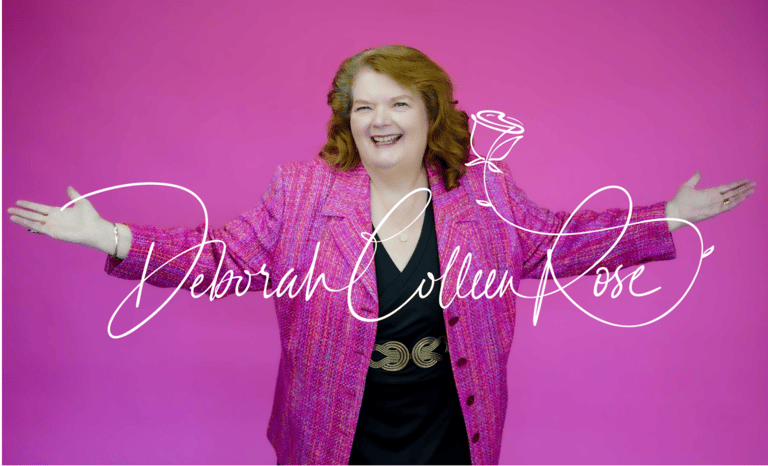Toast in a Biscuit World
RELATIONSHIPS
Deborah Colleen Rose
6/29/20253 min read
My grandmother — my dad’s mom, and we called her Mimi — made the kind of biscuits folks still rave about, years after she passed.
Tall, golden, almost towering peaks you could climb to heaven. They rose like hymns in her oven — fluffy on the inside, kissed with crisp on the edge. People treated them like pure hedonism in a mouth: split them with reverence, soaked them in gravy like moonshine at a party, and moaned a little when they took a bite — part delight, part grief, because the pleasure would be over too soon.
She was known for it. Her legacy, wrapped in flour and fat and care.
And here’s the problem.
I didn’t like biscuits.
I was, and still am, a buttered toast girl.
But not the toaster kind — no, that’s cheating.
I mean toast the right way.
Bread laid with four thick pats of real butter — enough to soak in and still leave puddles. Hard and sturdy enough to survive the broiler, melting and spreading just a bit and saturating the bread into a lovely buttery pool.
You slide it under heat and watch it come alive: edges curling, bubbles rising, butter pooling into golden puddles, the whole slice balancing that impossible tightrope between crunch and melt.
It’s not a side dish. It’s an event.
Biscuits?
No matter how much jelly I used, or how much sausage gravy tried to help — they always stuck in my throat.
Like something I was supposed to love, but couldn’t make myself want.
But I didn’t say anything.
I didn’t want to offend the queen of the kitchen. That was her world — the kitchen was her chapel. And who was I to come in and ask for a different hymn?
And I didn’t want to be the odd one out — the kid who couldn’t appreciate what everyone else worshipped.
And pies… pies were her way of bringing heaven to earth. Everyone said so.
But me? I didn’t like pie. I liked meat. Gravy. Salt. Things that sat heavy and stayed put. Things that didn’t turn my stomach or make me feel like I’d swallowed sugar and regret.
And yet I ate them. Because it was expected.
But the thing is… she knew.
She noticed I never reached for seconds.
Noticed I didn’t hover near the oven when the biscuits came out.
Noticed the way my face changed when she pulled out pie after supper —
(and Lord, how people carried on about her pies).
But I loved pie crust.
The crunch. The bit of salt you could taste. The way it melted in my mouth like butter’s best secret.
So she’d bake me my own little treats — the extra bits she trimmed from the edges, pressed together, and baked just for me.
She didn’t owe me that.
But she gave it anyway.
And she never made a big deal about it.
Never teased me.
Never tried to convince me to try again, or “just take a bite” like grown-ups do when they want you to conform with a smile.
She just started setting aside a little piece of crust.
Baked on a separate pan.
Bare, plain, beautiful.
She’d hand it to me without words, and I’d slather it in butter and eat it like a queen at her own private banquet.
I didn’t know it then —
but that was one of the first times I remember feeling seen.
Really seen.
Not for who I should be.
Not for what I was supposed to like.
But for exactly who I was.
She never said,
“I understand you.”
But she didn’t have to.
She showed it with flour-dusted fingers and a scrap of pastry.
As a kid, that kind of acceptance is rare.
Usually, you spend childhood trying to earn a seat at the table,
pretending to like things you don’t,
laughing at jokes you don’t understand,
taking bites because someone expects you to.
But not with her.
She let me be the buttered toast girl at the biscuit table.
The pie-crust-only child in the house of flaky fruit filling.
And instead of making me feel odd or ungrateful,
she found a way to meet me in the middle —
quietly, sweetly, intentionally.
She compromised her talents
so I could feel included, not corrected.
That’s not just kindness.
That’s grace.
The biscuits were her crown,
but the crust was her offering.
She gave the world what they expected.
But she gave me what I could actually love.
And I think about that every time I bite into something made for someone else.
Every time I sit at a table and feel a little out of place.
Every time someone tries to feed me what they think I should want.
Because I had her.
And she knew better.
She didn’t feed me what I was supposed to love.
She fed me what I could receive.
And that’s why, all these years later,
I still remember the crust more than the pie.
The butter more than the jelly.
The toast more than the biscuit.
The gesture more than the food.
That’s the part that fed me.
